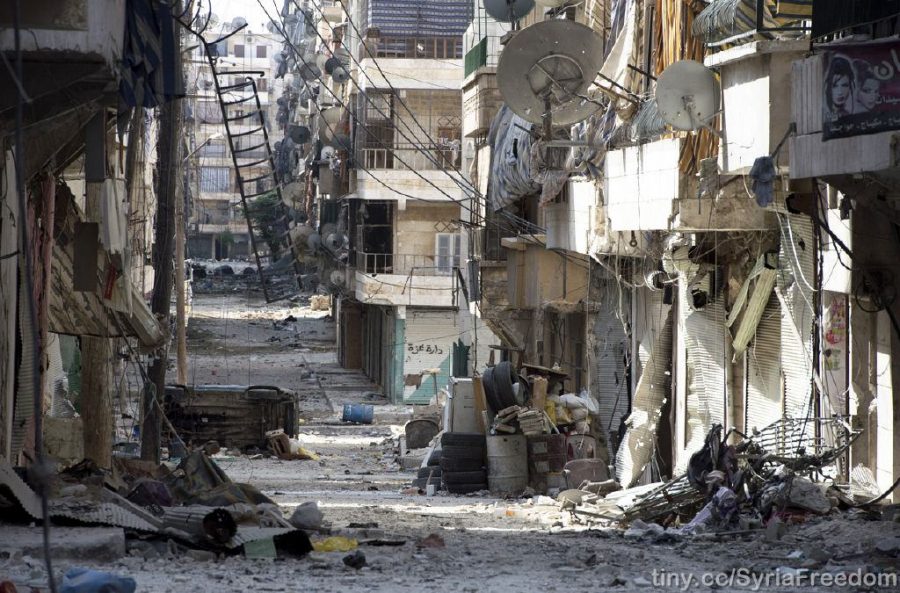As bombs fell onto the streets of eastern Aleppo, civilians were utterly mortified. There were supposed to be no more battles in the city. But as evidenced by the civilians’ final cries on social media, this was clearly not the case.
With the surrender of Aleppo to the Assad regime, the Syrian rebels had lost much of their edge in the Syrian Civil War. Under the terms of a ceasefire agreement negotiated by Russia on Dec. 13, both rebels and civilians were set to be evacuated to other locations away from the city beginning at 5 a.m. the next morning.
Yet, there was a sense that something was wrong with the evacuation. It first began with delays. As the buses were loaded, hours passed, until finally, activists tweeted that the ceasefire had failed because the sound of artillery shells breaking into buildings had resurfaced.
“It was wrong to break the ceasefire,” said Corbin Balitactac, a junior. “It’s a really horrible thing to do, they’ve already killed plenty of people, so what good will any more deaths do? We can only hope that they work out another agreement that works.”
The answer as to which faction broke the ceasefire is unclear. On Twitter, activists and rebels declared that the government had struck evacuation vehicles with barrages from the air.
Russia declared the opposite: that the rebels had initiated the conflict by firing at an evacuation convoy.
According to the Russian news organization, TASS, the Russian Foreign Minister, Sergey Lavrov, stated that the ceasefire was only meant to be a temporary break in fighting so that the “militants can get new weapons and ammunition.”
“The demands of silence each time are aimed at only one thing: so that the militants take breath, reinforce themselves and get new weapons and ammunition,” said Lavrov.
Meanwhile, the United Nations held an emergency Security Council in light of the ceasefire’s failure. An U.S. ambassador, Samantha Power, condemned Russia, Iran, and the Assad regime for their actions in Syria which she likened to war crimes.
“Aleppo will join the ranks of those events in world history that define modern evil,” said Power. “To the Assad regime, Russia, and Iran, your forces and proxies are carrying out these crimes, your barrel bombs and mortars, and airstrikes have allowed the militia in Aleppo to encircle tens of thousands of civilians in your ever-tightening noose. Three member states of the U.N. [are] contributing to a noose around civilians.”
Several Carlmont students were opposed to having the United States provide resources for the city despite the United Nations’ call to action. They worried that U.S. intervention would either escalate the conflict or prolong the war.
“Even though it’s immoral, I think Assad will get away with his crimes,” said Amaury Avat, a junior. “[The government] should have definitely respected the ceasefire, but [the situation] is too complex for America to go in. The best thing we can do is give food and supplies, but we’ll have to firmly state that we’re only there for humanitarian purposes.”
On the off hand, a small minority vouched for helping the citizens of Aleppo, even with possible consequences in mind. Because so many lives are involved in the crisis, many students argued that it would be better if the United States did as much as it could afford in order to bring innocent civilians out of the fighting.
“We should help the people in Aleppo because it’s the right thing to do,” said Brian So, a junior. “We don’t want to regret it later if we know that we could have done something, but we didn’t.”


